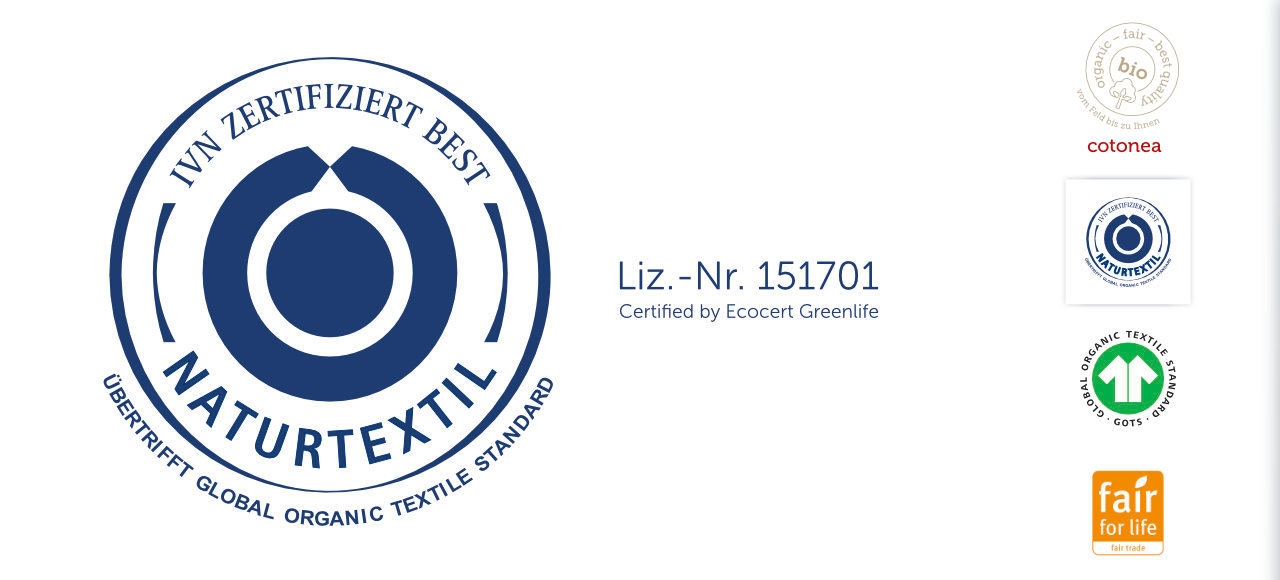
Textile Seals & Certifications
The flood of textile labels and what they really mean.
General information Cotonea labels
The flood of textile labels and what they really mean.
General information Cotonea labelsAll these interests cannot be easily reconciled, which is why there are a confusing amount of different textile seals on the market. Sadly, they are sometimes only PR moves, equipped with large marketing budgets, as, for example, the widespread standard Ökotex 100 or the label Cotton Made in Africa. They are also so widespread as their requirements can be fulfilled easily, therefore you can find them on many products. Often the fees for the label are high - with the effect that the available marketing budget increases. Therefore, it is worth taking a closer look and to inform yourself about the philosophy that is behind a label.
Most Cotonea products are certified with IVN Best. This is the highest standard for natural textiles. But we offer you more than the highest standard.
All our products are durable and therefore long-lasting, they are of high quality and are not only produced with great care by us but also by our suppliers. If we have to choose between “good” and “cheap”, we will always choose “good”. IVN Best does not take these criteria into account. Therefore, we have added this additional seal to the world of Cotonea, which not only takes the whole chain of production into account, but also the trust which you as consumers can have in us.
This seal means: Cotonea is consistently ecological, fair and healthy. You can trust Cotonea.
Best works with a positive list for all used materials and chemicals and, in addition, with a list of limits for the final product. In order to be added to the positive list, every necessary resource, every dye, every chemical must be registered with the full disclosure of its formula. In comparison to most other standards, we do not have a Restricted Substances List. Instead, only known harmless ingredients are allowed, and in addition very strict limits apply for contamination or reactions. This way a production process according to IVN Best forgoes many a popular admixture – such as elastane – which tends to improve the wearing comfort of, for example, t-shirts. IVN Best stipulates social standards which are monitored on-site at the companies. These are orientated to the core standards of the International Labour Organisation (ILO).
Bottom line: this is the standard with the world’s most demanding requirements for natural textiles, that is currently available. As only very few manufacturers can fulfil the standards, this seal is not very widespread.
More materials and processes are allowed that could have a negative ecological effect or possibly negative effect on health. These are e.g.
Bottom line: this is a widespread, good standard with a good philosophy but also containing compromises. Currently, there are suspicions that products produced by genetically engineered organisms are marked with the GOTS label.
This label identifies a product, whose raw materials are cultivated AND the production process is implemented according both to socially-fair aspects. It does not certify that the product is organic nor that the farmers receive fair wages. (similar to Fairtrade international). The standard setters simply make money from the certification fees.
Bottom line: objectively a better standard than FT International. As no licence fees are charged, the standard setter does not find itself in a conflict of goals between high standards and licence fees.
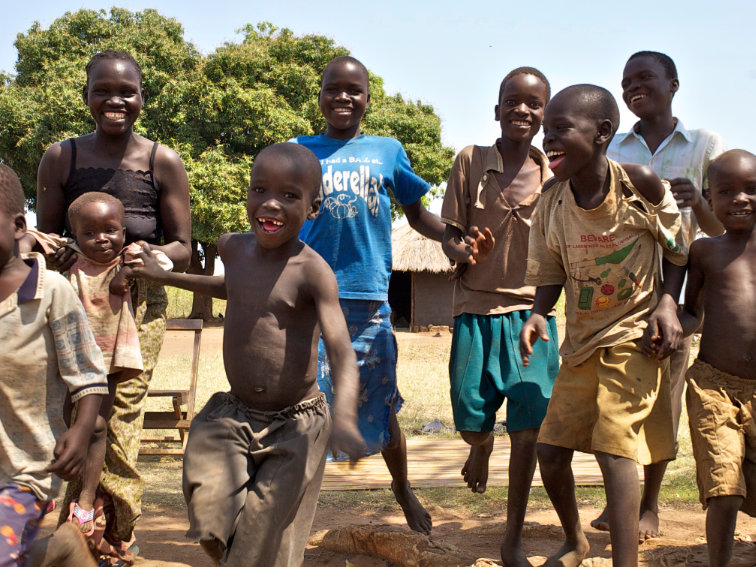
Cotonea endeavours to provide benefits, to not do any harm and to improve people’s lives.
Find out more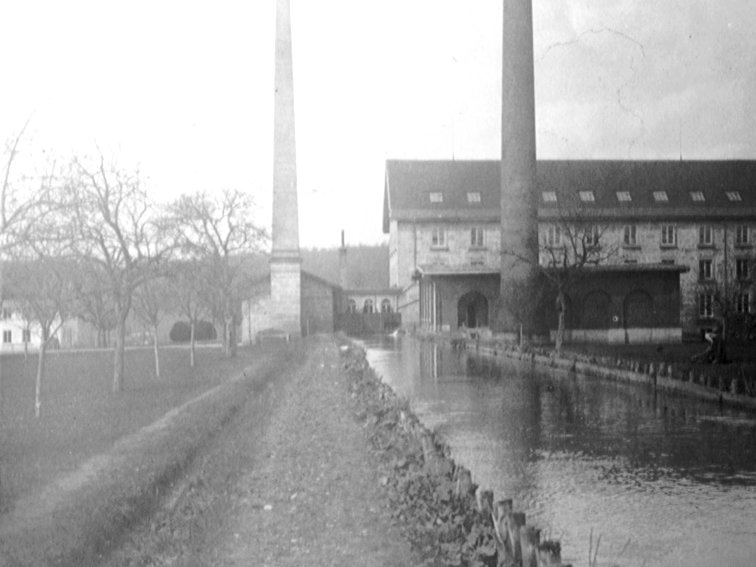
Elmer & Zweifel: manufacturers of the organic brand Cotonea with more than 160 years’ expertise in cotton.
Find out more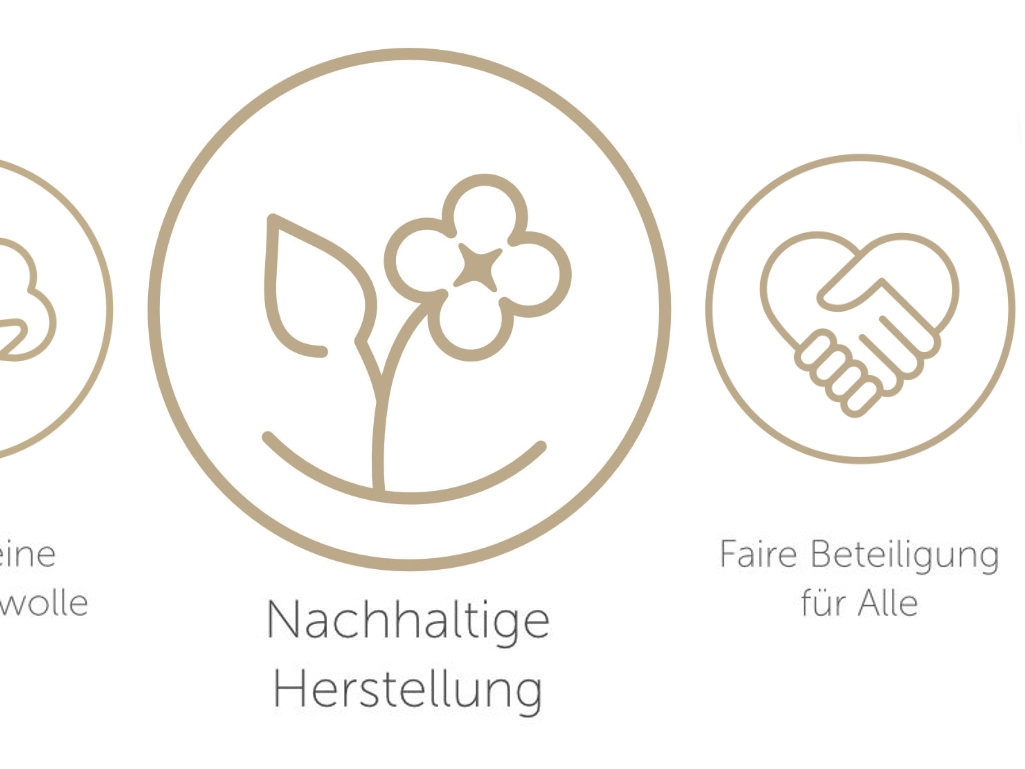
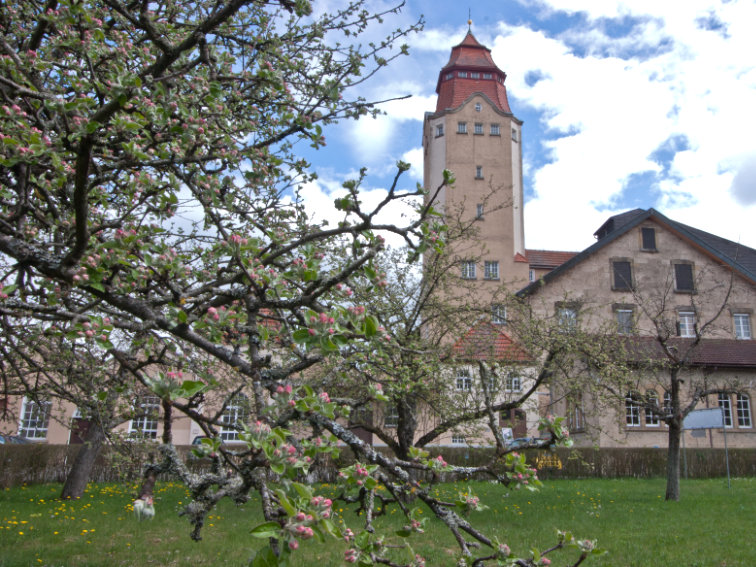
Cotonea has been producing its own energy using hydropower since 1855 and its own solar energy since 2002.
Find out more